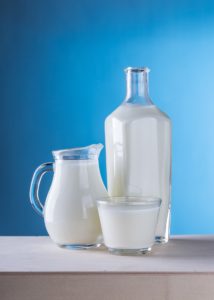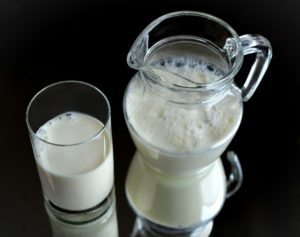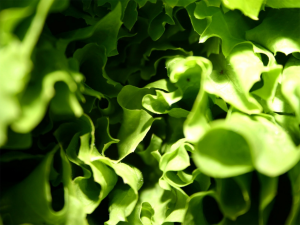Is Casein Or lactose Causing Your Digestive Problems?
Many people assume that if they experience gas or bloating and pain after consuming dairy that they are lactose intolerant. This may not always be the case. This can occur for other reasons as well.
A lactose intolerance usually affects just the digestive system while a casein sensitivity can have an impact in other areas of health as well.
How to Know if you are Lactose Intolerant
If you are lactose intolerant, this means that you lack the enzyme, lactase, to break down the sugar, lactose in your dairy products.
- Signs and symptoms typically occur about 30 minutes after ingesting the food containing dairy. (but can occur up to 2 hours later)
- You may experience gas, bloating, loose bowels, sinus congestion, cramps and nausea.
- Typically, those who are lactose intolerant can still eat most cheeses and not experience symptoms. This is because in the process of making cheese, lactose is converted into lactic acid which is easy to digest.
- Cream, butter and yogurt have little to no lactose (full fat heavy whipping cream has none) so these are still okay for those with lactose intolerance. Heavy whipping cream also does not contain casein.
- Skim milk does contain lactose.
- Fermented dairy such as kefir has less lactose so you may be able to tolerate it.
- Even if you are lactose intolerant you may be able to digest small amounts in a single meal.
- Yogurt contains less lactose than milk.
- Raw cheese has only small amounts of lactose and casein.
Pay attention to which dairy foods give you trouble. Is it just milk? Is it only when you consume large amount of dairy? This may help you to figure out if your issue is with lactose. If it is an issue with lactose then taking a digestive enzyme that contains lactase 30 minutes prior to the meal may help, along with consuming smaller amount of dairy at your meals or eliminating it from your diet (you don’t need dairy to meet your calcium needs-see more information below).
The brand of digestive enzyme I like is Enzymedica.
Which Cheeses have less lactose?
If you aren’t ready to give up dairy, here are some cheeses you can still eat if you are lactose intolerant
- The fresher the cheese the more lactose it will have; aged cheeses are a better choice.
- You want to opt for cheeses that have less than 3% lactose range. (whole milk has 3.7-4.8%)
- Muenster, camembert, brie, cheddar, provolone, gouda, blue, parmesan and swiss are all good choices.
- AVOID: Feta, ricotta, Colby, American and Velveeta (why would you eat these last two processed cheeses anyway?).
- Opt for organic, raw and grass fed cheeses if you can. (see below for more information as to why)
Signs It May Be the Casein and Not the lactose in your Dairy
Casein is the main protein in dairy and is also added to other foods used as a binding agent. Casein is found in milk and in lactose free dairy products. So, if you consume lactose free products and still experience symptoms it may be the casein and not lactose that is causing your issues.
In addition to gut and digestive symptoms, a casein sensitivity has been linked to ADHD, autism, brain fog, asthma, aggression, anger and excess mucus production. It can also cause headaches, ear infections, eczema and skin allergies.
Ask yourself, in addition to your digestive issues are you suffering from any of the issues mentioned above? If so, it may be the protein in the dairy. If you are still unsure you may want to do food allergy testing. Tests range from stool samples to blood tests. Butter contains very little casein and heavy cream does not contain casein. The dairy foods that have the most protein will contain more casein.
If it is casein and not lactose that is an issue for you, removing casein from the diet is a good first step. However, if you have been reacting to it for a long time there may be other issues that will need to be addressed such as possible intestinal permeability and systemic inflammation.
What You Need to Know About Your Dairy
Pasteurization is a process that heats the milk to kill off bacteria, microbes and pathogens. However, the process also kills off the good bugs. It also destroys enzymes that are needed to break down fats, and proteins and to deliver vitamins and minerals.
Ultra- Pasteurized milk is heated to 275 degrees and destroys everything! It is best to avoid this type of milk.
Pasteurized milk is heated to 160 degrees and preserves some of the good bacteria.
Vat-Pasteurized is heated to 135 degrees and preserves the good bacteria and many of the enzymes. This is the best commercial choice. Organic Valley brand has a whole milk that is vat pasteurized. Kalona Farms brand offers vat pasteurized products as well which can be found at Whole Foods.
Opt for organic milk to avoid antibiotics, growth hormones and pesticides that are carried in the fatty portion of the milk. While I don’t recommend skim milk, if you don’t buy organic this would be your safer bet since it does not contain the fat and thus will not be contaminated with the hormones, antibiotics and pesticides that milk with fat would contain. But skim milk is also harder to digest and lacks beneficial fats.
If you consume large amounts of milk, you may want to consider raw milk shares. Go to realmilk.com to find a local farm. If you have a casein sensitivity, even raw milk may not be for you. There is a brand called A2 which many with a casein sensitivity can tolerate. The downside however is that it is not organic. If you are lactose intolerant you may want to opt for milk alternatives such as nut milks, hemp milk or coconut milk.
Keep in mind that “You are what your food eats”. If you consume dairy products from a CAFO (confined animal factory operation), you will be consuming some of the hormones, antibiotics, GMO feed etc. that is given to these cows that may never see the light of day and never leave their confined very small indoor space.
There are many small local farms that you can support. They may not have the organic label but do follow organic and humane practices. Visit your local farmers market in the summer and stop and talk to those at the booths to find out how you can get their products year-round.
Non-Dairy Calcium Sources
Many people still think that the only way to get their calcium is via dairy products. This is just not true! There are many non-dairy calcium sources. And in fact, there are numerous cultures around the world that do not eat dairy and yet still have healthy bone density. To absorb your calcium, you need adequate amounts of vitamin D3. Most dairy products are fortified with vitamin D2 which is synthetic and not as easy to absorb and assimilate. Take a vitamin D3 supplement or get some sunshine if your blood work shows that you are low.
Non-dairy Calcium Sources
- Dark leafy greens such as collard greens, spinach and kale
- Dark green vegetables such as broccoli
- Legumes
- Sesame seeds
- Almonds
- Canned salmon with bones
- Sardines
- Rhubarb
- Okra
- Edamame
- Black eyed peas
Is It Better to Consume Fermented Dairy (kefir) and Goat Dairy?
Kefir fermentation breaks down proteins in the dairy and thus those with a casein sensitivity may be able to tolerate kefir. The kefir microorganisms ferment milk lactose. Kefir contains a lot of bacteria that aid lactose digestion. These bacteria may help to digest lactose. The plus is that kefir also has a broad range of nutrients and due to its probiotic content is supportive for gut an immune health.
Lifeway kefir states that their kefir is 99% lactose free and this is due to the fermentation process. The cultures break down the lactose. Lifeway states that not all kefirs are 99% lactose free so you may want to contact the company before you trying other brands.
Kefir may be a good option if you cannot tolerate casein or are lactose intolerant. Better yet, opt for goat milk kefir since goat milk is known to be easier to digest.
Bottom Line: Experiment with various dairy foods to see which you can tolerate and which that you cannot. If you have any mood or skin issues in addition to the digestive issues, it may be best to work a professional to work on gut healing, addressing possible leaky gut and nutrient deficiencies. A nutrition professional can guide you as to which foods you can safely tolerate. While Americans love their dairy, it is not a necessary food group to maintain optimum health and in reality, may be causing some of your chronic health issues.
Sources
http://bodyecology.com/articles/2-signs-of-enzyme-deficiency-that-you-can%E2%80%99t-miss
http://www.stevecarper.com/li/list_of_lactose_percentages.htm
http://milkgenomics.org/article/kefir-microorganisms-break-down-milk-proteins/
http://www.onegreenplanet.org/natural-health/how-consuming-dairy-can-impact-your-mood
http://articles.mercola.com/sites/articles/archive/2003/03/26/pastuerized-milk-part-one.aspx
www.safeharbor.com
Bauman, E. & Friedlander, J. (2014) Foundations of Nutrition. CA: Bauman College.
If you are sick and tired of feeling sick, tired, fatigued, depressed, anxious and more and have given up hope then Karen’s simple, effective, individualized and sustainable approach may be what you need.
Karen Brennan, MSW, CNC, Board Certified in Holistic Nutrition and Herbalist is the author of Tru Foods Depression Free Nutrition Guide; How Food Supplements and herbs can be used to lift your mood and owner of Tru Foods Nutrition Services, LLC.
For more information visit www.trufoodsnutrition.com
Get her Food Swap Guide here to get started on your health journey today! Want more information, like her fb page here
As a nutrition professional, Karen does not treat, cure nor diagnose. This information is for educational purposes only.






Thanks, it’s quite informative
Thanks to the wonderful guide
Thanks for the great article